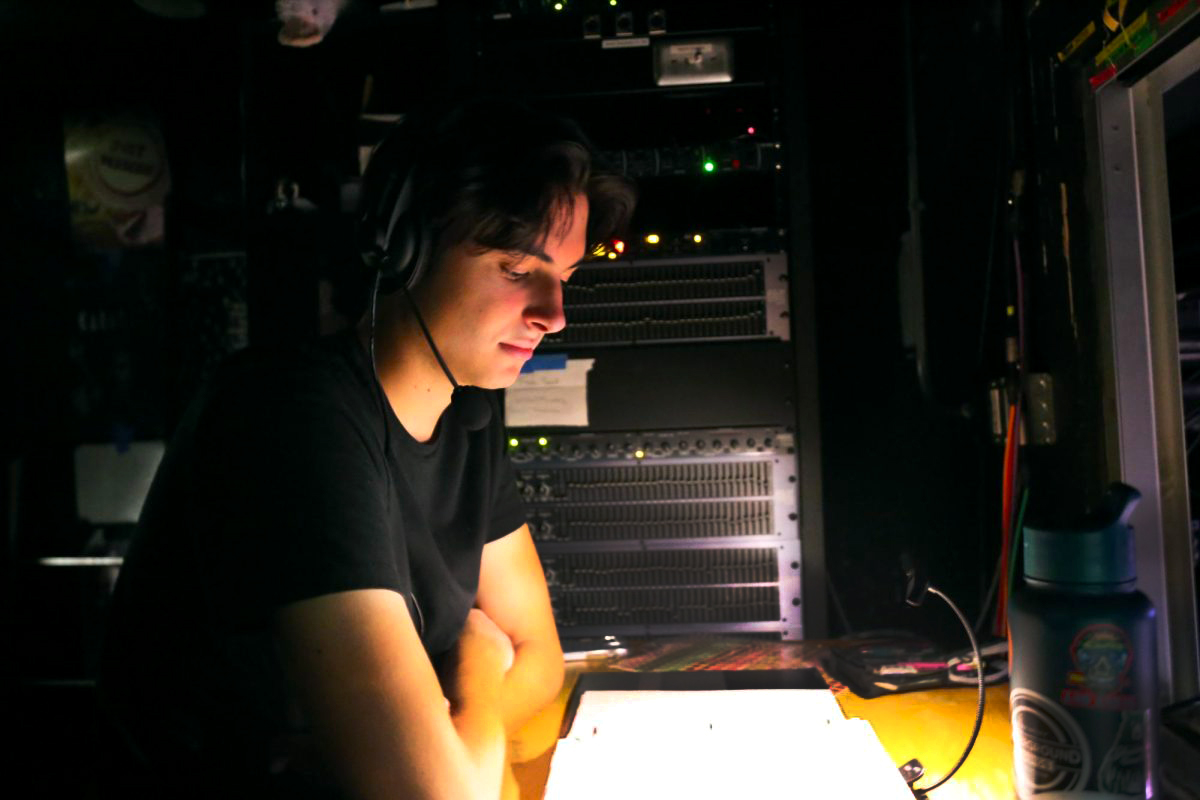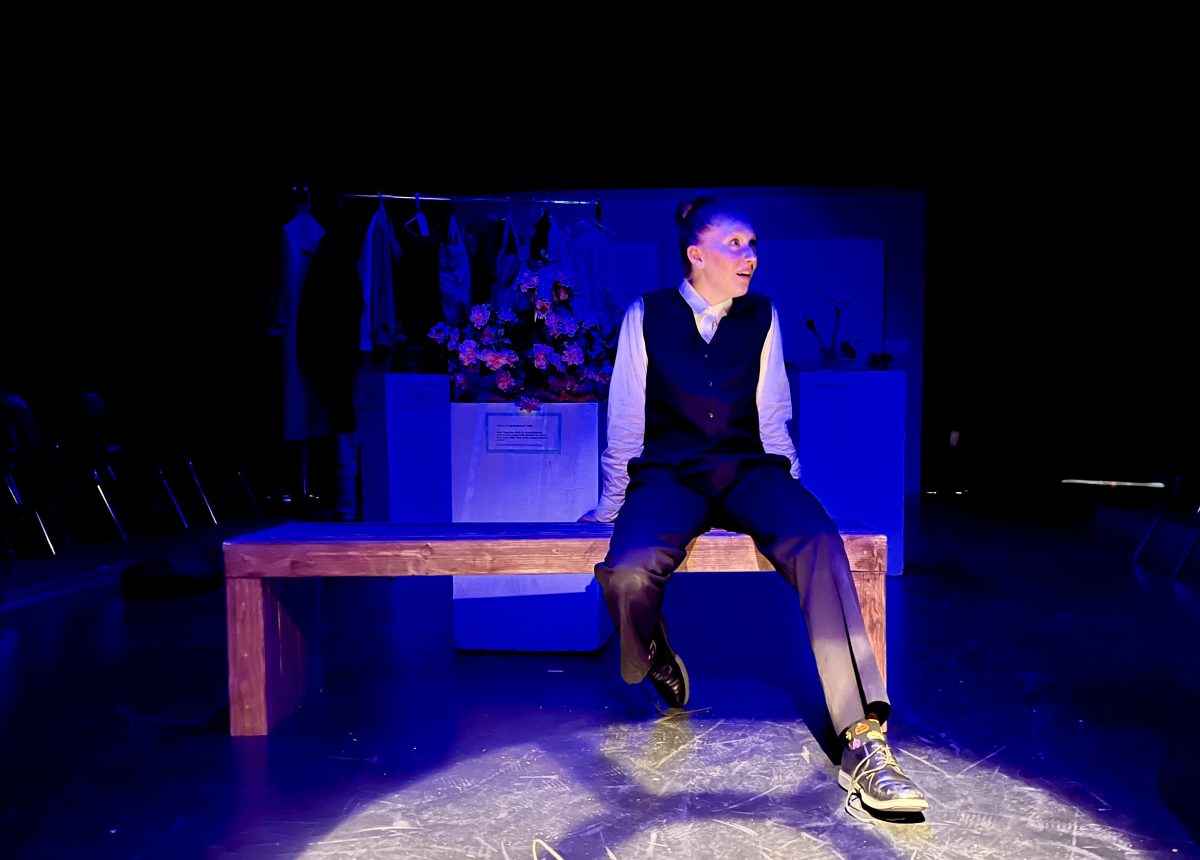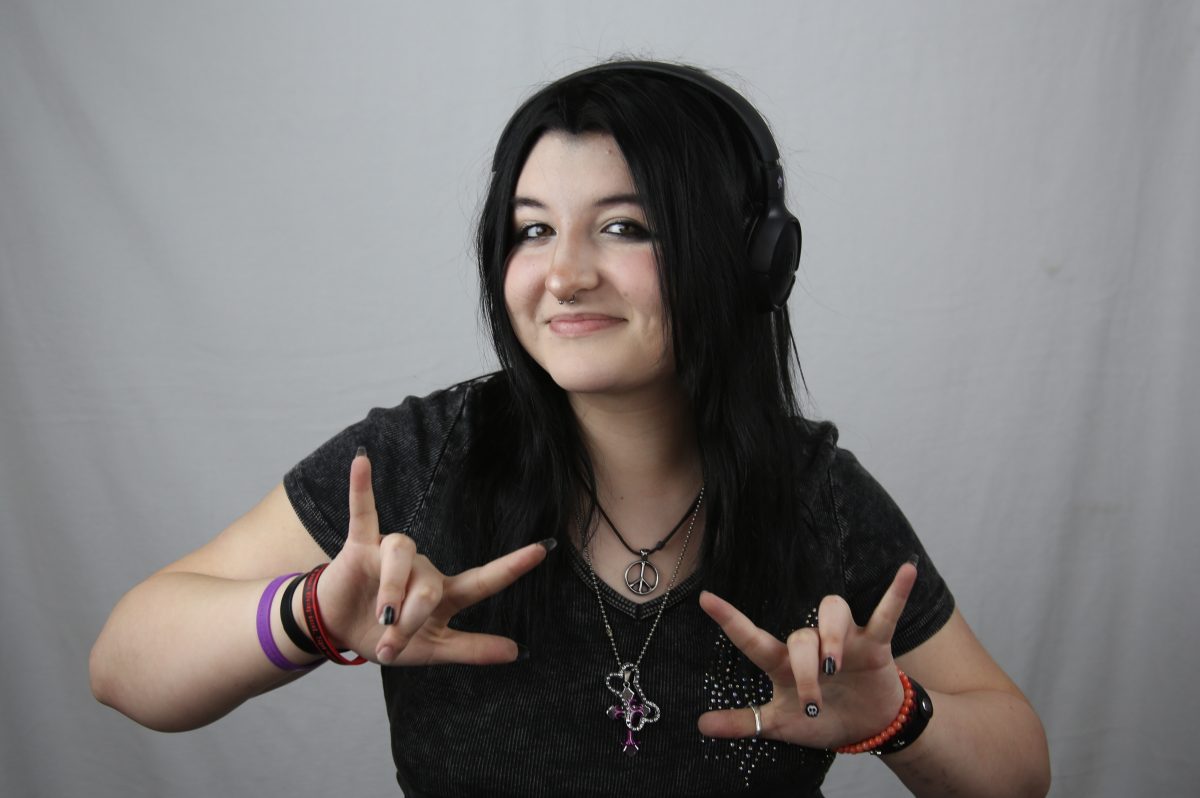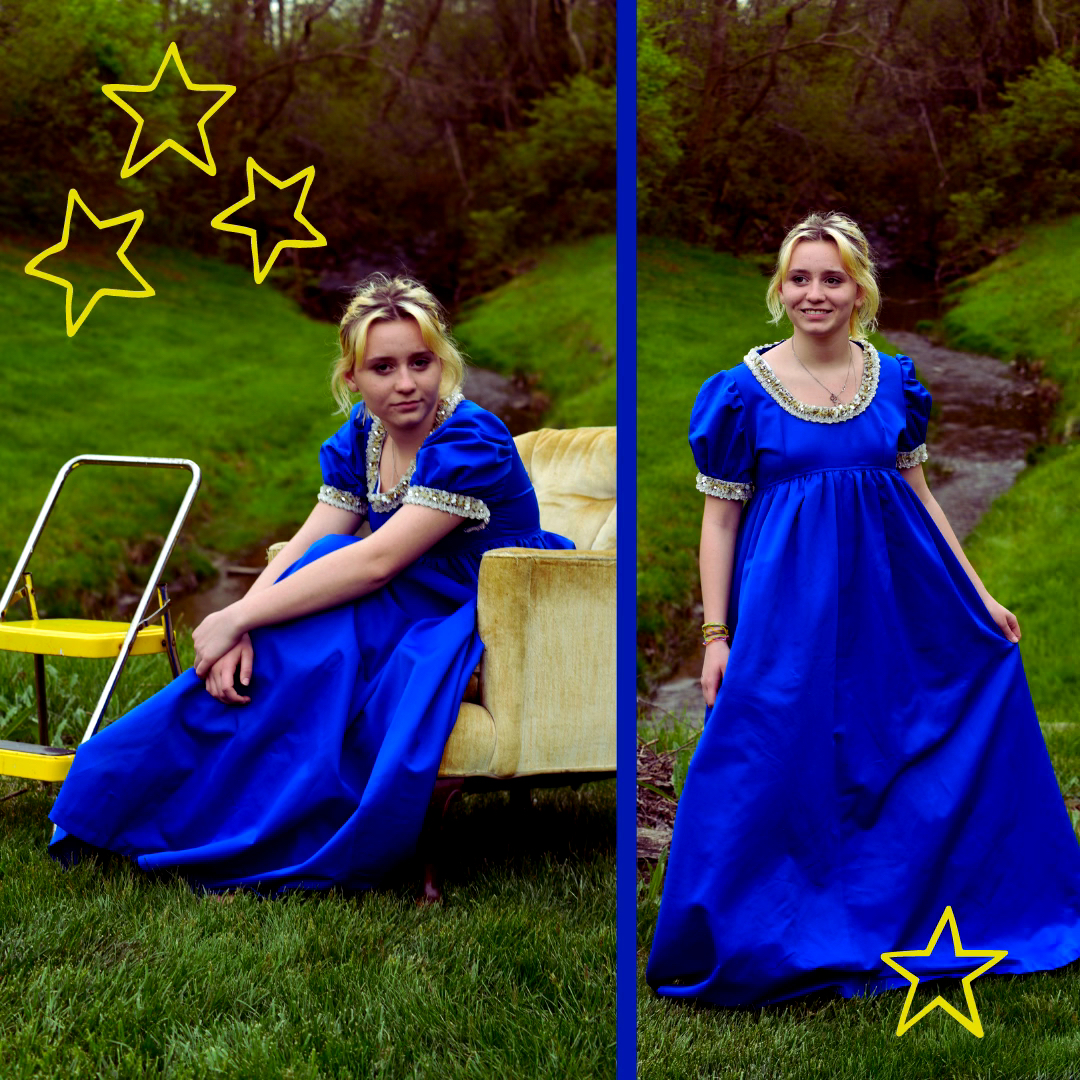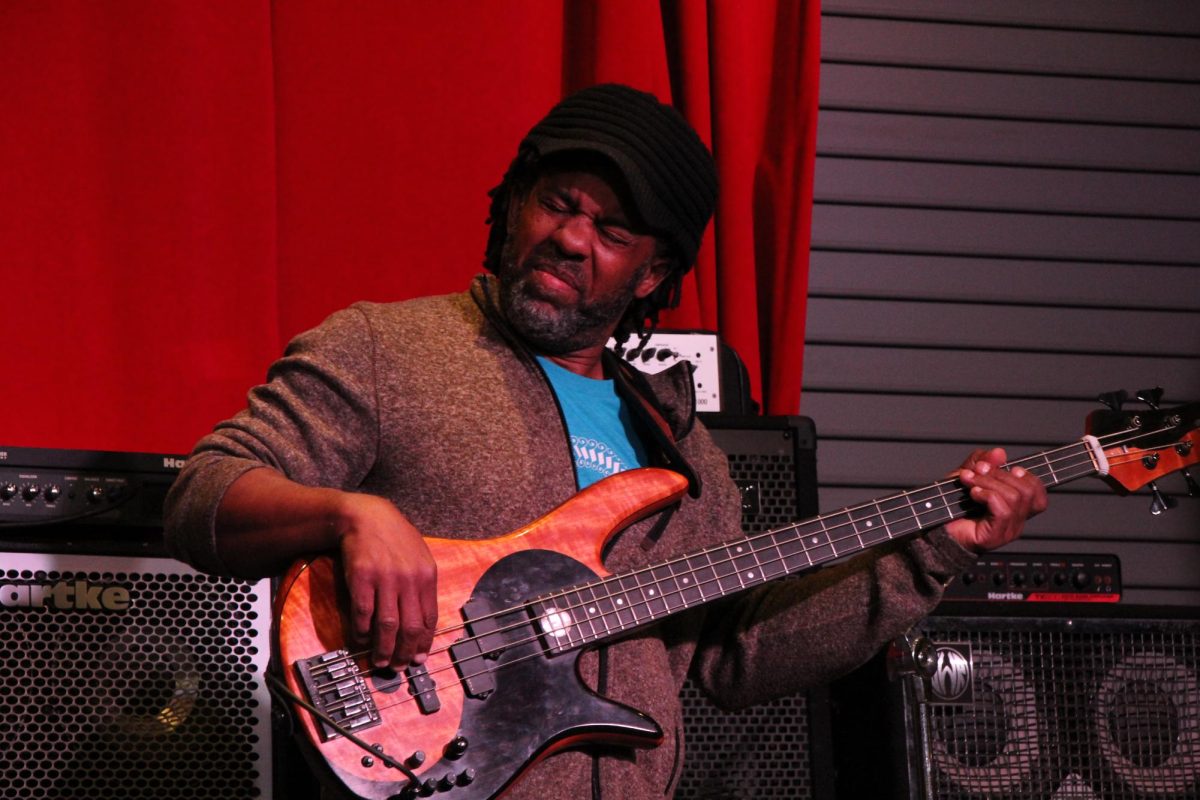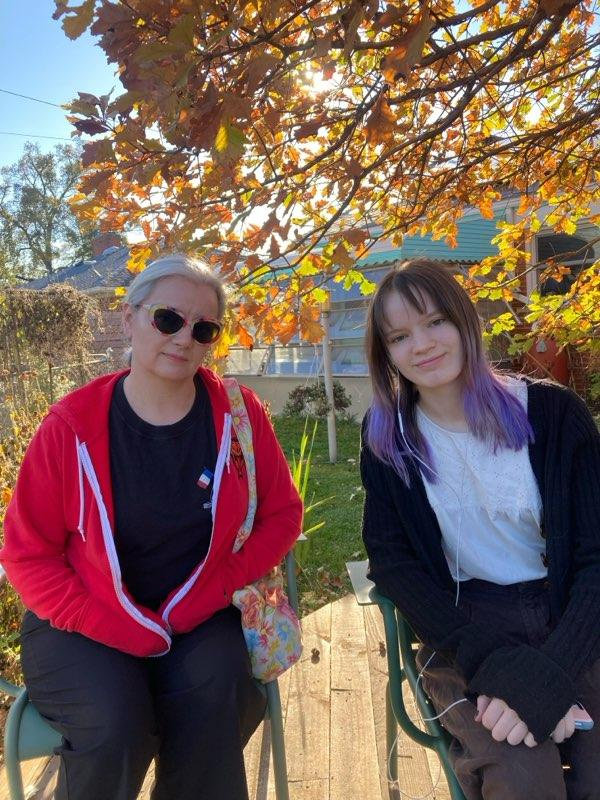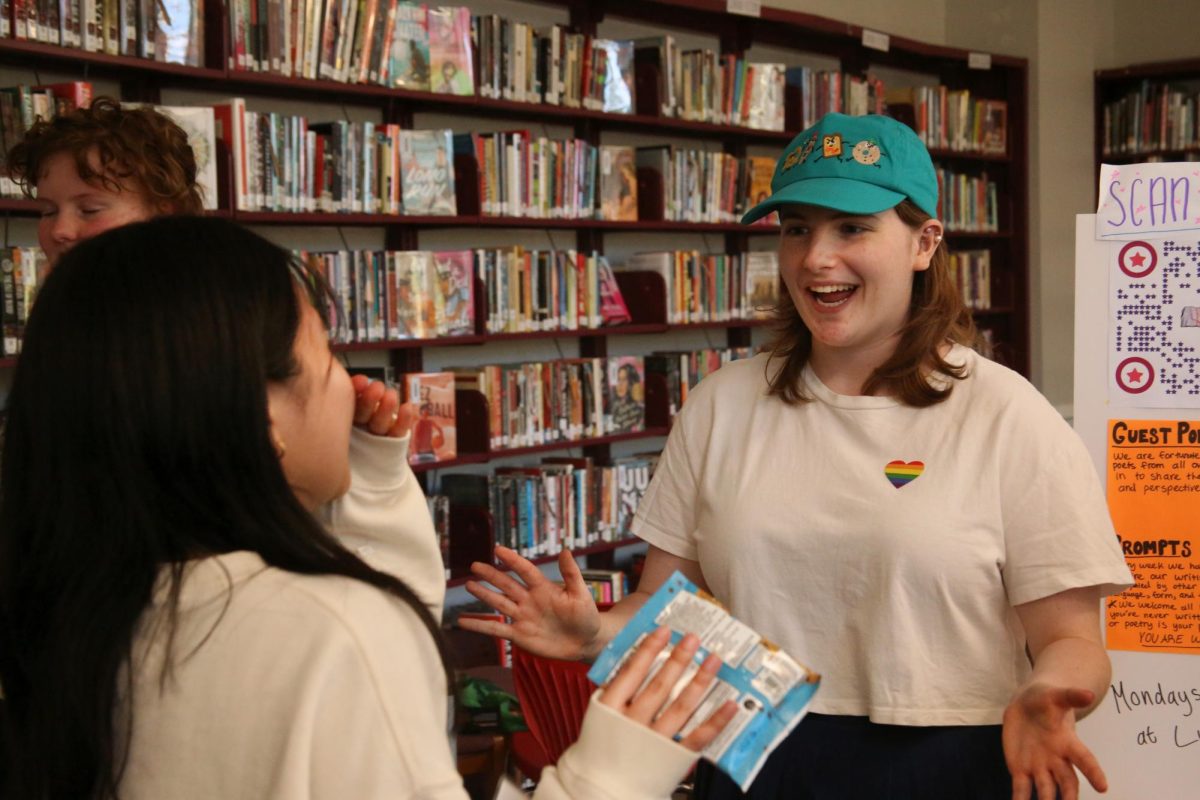PARKER HAYMART
In the backstage bustle, where the hum of anticipation permeates, resides the stage manager of Community Ensemble Theatre (CET). As Senior Parker Haymart steps into auditions, rehearsals, and performances, a new approach unfolds, marking a significant shift in his theatrical journey. At CET, Haymart has always embraced silliness and enjoyment. However, a bittersweet sentiment now colors his experience as the much-anticipated spring musical, “Natasha, Pierre & the Comet of 1812,” approaches — a show he’s been eagerly awaiting since its announcement last year.
Mixed emotions now tug at Haymart as he grapples with the realization that this marks his final performance.
“Getting all the pieces to come together is always exciting,” Haymart said. “I have so much faith in this show. I know it’s going to be so fun. But then also throughout the whole thing is always a thought in my head, this is the last time I’m going to see it all come together.”
Navigating this emotional terrain, Haymart finds himself uncertain about balancing the excitement and bittersweetness. His approach evolves in phases, with the initial stages bringing excitement, yet he anticipates the encroaching sadness as the show’s end draws near — especially during senior send-offs. Despite the impending emotional complexity, Haymart eagerly looks forward to reuniting with friends and the CET community for one last memorable experience.
“I’m trying to focus on the now and how I still have so much time with CET and not focus on the endpoint,” Haymart said.
In the magnetic environment of CET, students effortlessly forge close bonds, particularly during tech week. Over the years, Haymart has worked with various individuals, witnessing their transitions while remaining a constant presence. His connection with Hannah Rubenstein, CET’s co-stage manager, and Emily Wilson-Tobin, CET’s Director, deepens, providing insight into their personalities through partnership and teamwork.
“I’ve learned their food cravings and the way they work. We’ve learned how to work together and collaborate seamlessly and we rarely have kinks,” Haymart said.
As a part of the overall crew student leadership, Haymart and some others have started to put on a performance for the cast during tech week. It has become a new tradition, as a way to say break a leg to the performers. One of Haymart’s favorite memories of bonding has been performing these short shows between performances on Saturday. They danced and sang to a song from “Pitch Perfect.” Those involved would sneak off during rehearsals and crew days to practice the dance. Sometimes it would be all of them or just two of them, whoever was there had a fun time working hard to learn the dance, choreographing it and learning the words with it.
When they finally got everyone in the theater for the performance they had light cues and microphones and props to accessorize the halftime show. It was a big collaborative effort of the crew giving a performance back to the cast.
“When we do the dance, I feel like a superstar doing it. It was a lot of fun with our costumes and choreography,” Haymart said.
As a cherished tradition, senior send-offs loom on Haymart’s horizon, evoking a blend of anticipation and trepidation. The heartfelt reminiscences shared during these farewells resonate, yet the departure of familiar faces, whether acquainted or not, leaves a poignant impact.
“I think this is a really beautiful way for me to end my time with this community, as well as other seniors to end their time here,” Haymart said.
Characterizing his senior year in one word, Haymart chooses “electric.” It encapsulates the constant jolt of energy, excitement and dynamic beauty that defines his experience. The anticipation becomes palpable in the midst of the myriad activities and people contributing to this once-in-a-lifetime, never-ending journey.
“The anticipation is insane,” Haymart said. “There’s so much going on with so many people doing so many things. To hear and see everything, it’s a once-in-a-lifetime experience.”
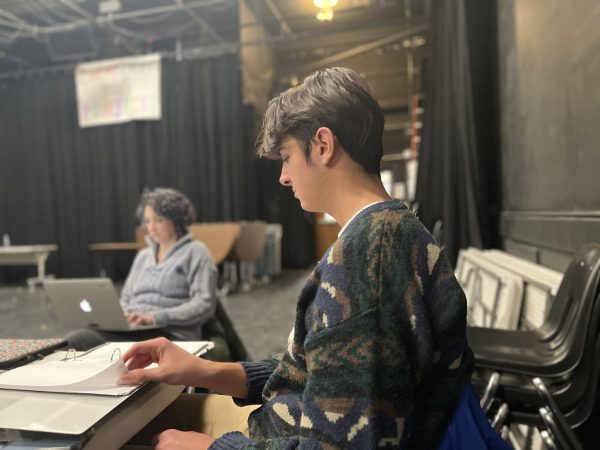
EMILY WILSON-TOBIN
As the curtains rise on the second act of senior year in high school, the stage is set not only for the crescendo of musical endeavors but also for a reflective pause. Amidst the harmonies and choreography, it becomes evident that the heartbeat of Community Ensemble Theatre (CET) lies in the quiet yet profound relationships forged behind the scenes. The spotlight turns towards the transformative connections that define the shared journey in musical theater during this pivotal senior year.
At the helm of it all stands CET’s director, Emily Wilson-Tobin, offering sage words of advice. Despite witnessing numerous senior classes graduate, Wilson-Tobin is still navigating the best ways to cope. One strategy involves focusing on her excitement for the seniors, contemplating the next chapter of their lives and the discoveries awaiting them, serving as a reminder that the upcoming phase will, hopefully, be very enjoyable.
“I work in a space that is always fluid, so I’m always going to be experiencing loss,” Wilson-Tobin said.
Wilson-Tobin has come to realize the ongoing nature of relationship-building, something she thoroughly enjoys. She believes this is why bidding farewell becomes a more challenging endeavor for her. Simultaneously, she underscores the importance of allowing herself to feel the sadness, considering it a crucial element of the healing process.
“Allowing myself to be sad about it, I think, is really important,” Wilson-Tobin said.
In response to this emotional journey, she has implemented a week-long Senior Send-Off. Gathering thoughts and anecdotes from everyone involved allows her to reconnect with seniors, whether she has just met them or known them for years. This ritual serves as validation for the bonds formed and strengthened during the show process.
Reflecting on the recent production of Tina Howe’s “Museum,” Wilson-Tobin highlights the challenge of integrating new students into a show with multiple vignettes. She observed the initial anxiety of newcomers walking into a group where pre-existing bonds were already established. However, as the production progressed, she witnessed the transformative power of mentorship and shared play, leading to a visible sense of belonging among the cast.
“As a result of the mentorship and the collaborative play, I started to see a visible feeling of belonging,” Wilson-Tobin said.
With her experience in witnessing the graduation of past senior classes, Wilson-Tobin offers valuable advice to those grappling with the bittersweet emotions of farewells. She emphasizes the importance of providing a safe space for students to feel whatever emotions arise, reassuring them that it’s okay to be sad and acknowledge the loss.
“I think if we pretend this isn’t happening, we’re not doing ourselves any service,” Wilson-Tobin said.
She also guides seniors in recognizing the impact they’ve had on CET, encouraging them to appreciate their achievements and the contributions they’ve made to the theater community.
“Look at how you’ve made your mark, look at what you’ve done, look how you’ve brought people in and created new traditions,” Wilson-Tobin said.
Crucially, Wilson-Tobin strives to help seniors realize what comes next. Whether or not it involves theater, she emphasizes that what they have experienced in the CET community will always be a part of them. They carry those experiences into something new, different, and, in her opinion, better. The uniqueness and emotional charge of senior year, according to Wilson-Tobin, lie in the weight of the word “last.”
“It is the last fall play. It’s the last musical. It’s the last Just Desserts. Knowing whatever it is that’s next, whether it’s college or moving right on to your career or a gap year, I think it’s a transition into adulthood that is completely unique,” Wilson-Tobin said.
In the world of theater, each performance is a unique, unrepeatable moment, even when captured on video. For Wilson-Tobin, recognition is both gut-wrenching and deeply cherished, marking a transition to adulthood — a concept she believes should carry less pressure.
“My biggest advice? Be okay with living with the unknown at this point,” Wilson-Tobin said. “Live in it, enjoy it. You have so much adulting to do. Don’t rush it.”



